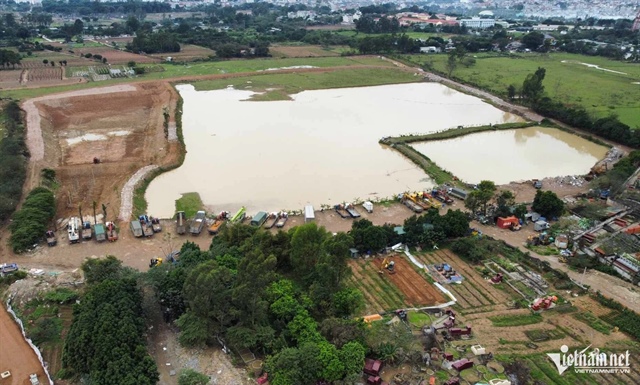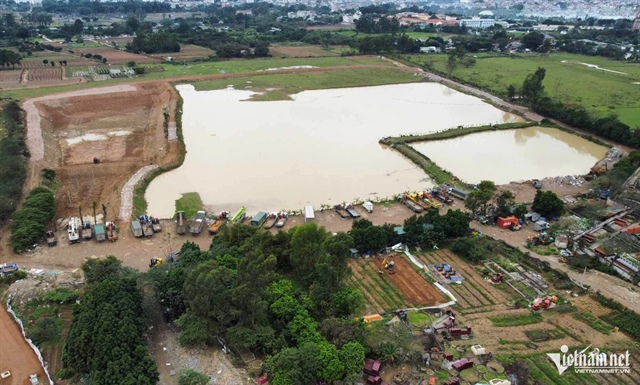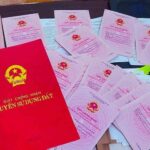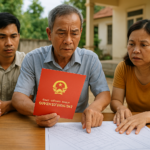A teacher reported that in 2010, they purchased land for annual crop cultivation, and the term of use stated in the Land Use Rights Certificate (red book) was December 2022, and they are still using the land.
The citizen wonders if, in this case, the state will extend or reconfirm the land use term according to the 2024 Land Law. If so, what procedures need to be done?
 Illustration: Hong Khanh |
In response to this query, the Ministry of Natural Resources and Environment stated that Point a, Clause 1, Article 172 of the 2024 Land Law stipulates: The term for land allocation and recognition of land use rights for individuals directly engaged in agricultural production using land for annual crop cultivation, aquaculture, salt production, perennial crop cultivation, and production forests that are planted forests, within the limit prescribed in Article 176 of this Law, shall be 50 years.
When the land use term expires, individuals can continue to use the land for the prescribed term without having to go through a term extension procedure.
Clause 1 of Article 174 of this Law also states: The term of land use when receiving the transfer of land use rights for land with a term shall be the remaining time of land use of that land lot at the time of transfer.
The extension of land use shall be carried out according to the regulations in Clause 3, Article 172 of this Law.
Especially, in cases of receiving the land use rights for agricultural land within the limit of allocated land of individuals directly engaged in agricultural production through the transfer of land use rights, or receiving the land use rights through a mortgage contract for debt processing, a court judgment, or an enforcement decision of the court, an enforcement decision of the enforcement agency that has been enforced, and the land use term has expired, the land can continue to be used according to the term prescribed in Article 172 without having to go through a term extension procedure.
“Thus, in the case of receiving the land use rights for agricultural land within the limit of allocated land of individuals directly engaged in agricultural production through the transfer of land use rights and the land use term has expired, the land can continue to be used for 50 years without having to go through a term extension procedure,” said the Ministry of Natural Resources and Environment.
Hong Khanh
– 06:00 19/06/2025
What’s the Process for Applications for Red Book Grants Submitted Before July 1st, 2025, But Not Yet Resolved?
“For land registration applications, including those for immovable assets attached to the land, and for the issuance of land-use rights and ownership certificates for such assets, a two-case scenario applies to applications received before July 1, 2025, that are yet to be resolved by the competent authorities.”
“What Does the Ministry of Agriculture and Environment Say About Families Who Own Land With Red Book But Cannot Divide Lots?”
The Ministry of Agriculture and Environment has responded to a query from a resident in Binh Dinh province regarding the inability to subdivide their land, despite possessing a red book (land-use right certificate). The issue arose as the resident’s house exceeded the recognized residential land area.
What Does the Ministry of Construction Have to Say About the Assignment of Contracts for the Sale of Future Dwellings?
According to the Ministry of Construction, sales contracts for future-built homes that have not yet submitted applications for ownership certificates can still be transferred in accordance with real estate business regulations.
“How to Rezone Agricultural Land for Residential Use”
“The 2024 Land Law sets out a clear framework for converting agricultural land use within residential areas. This process is guided by district-level land-use planning, as well as urban planning regulations approved by the relevant authorities. These plans could be in the form of master plans or sub-zone plans, providing a comprehensive framework for sustainable development.”














































